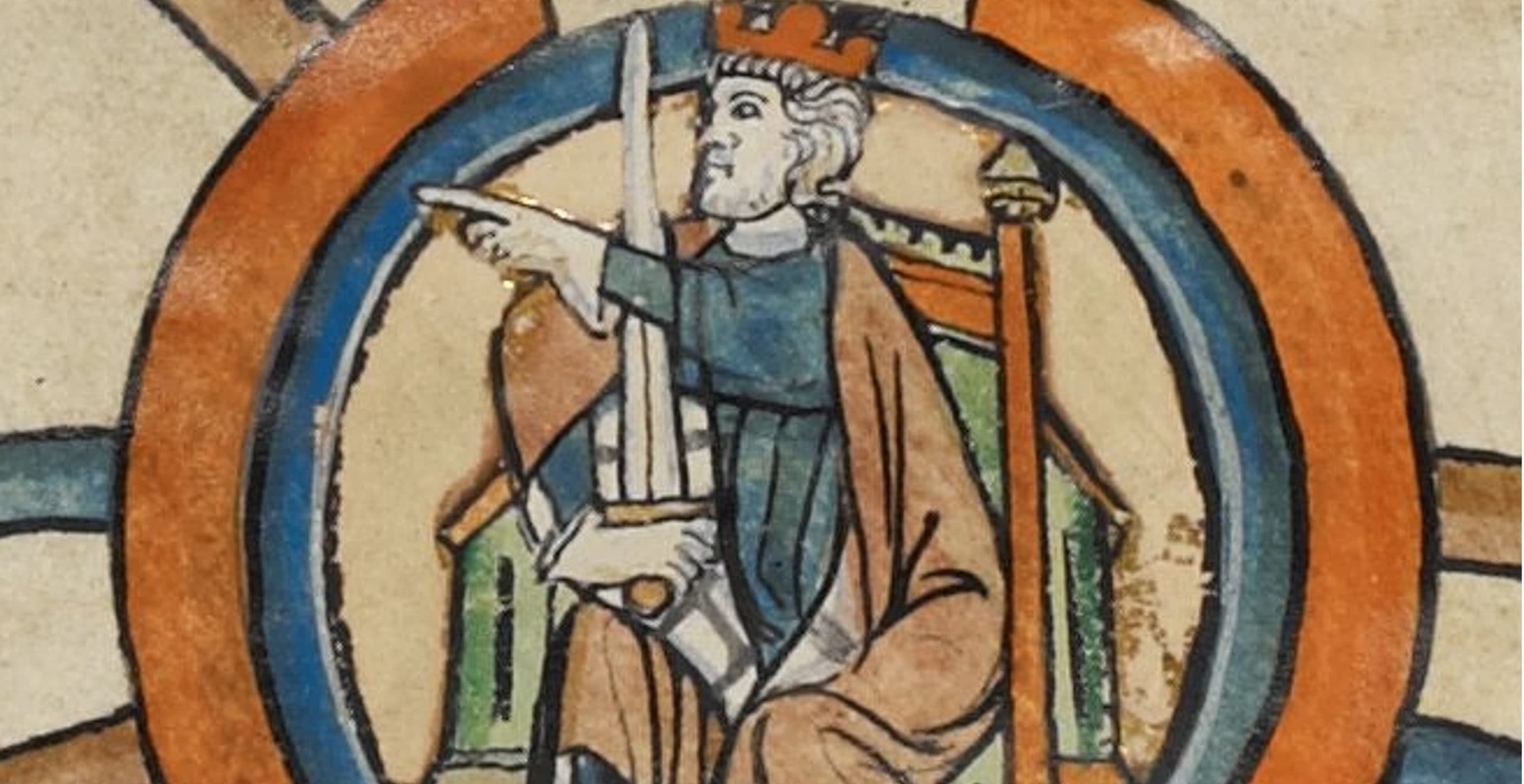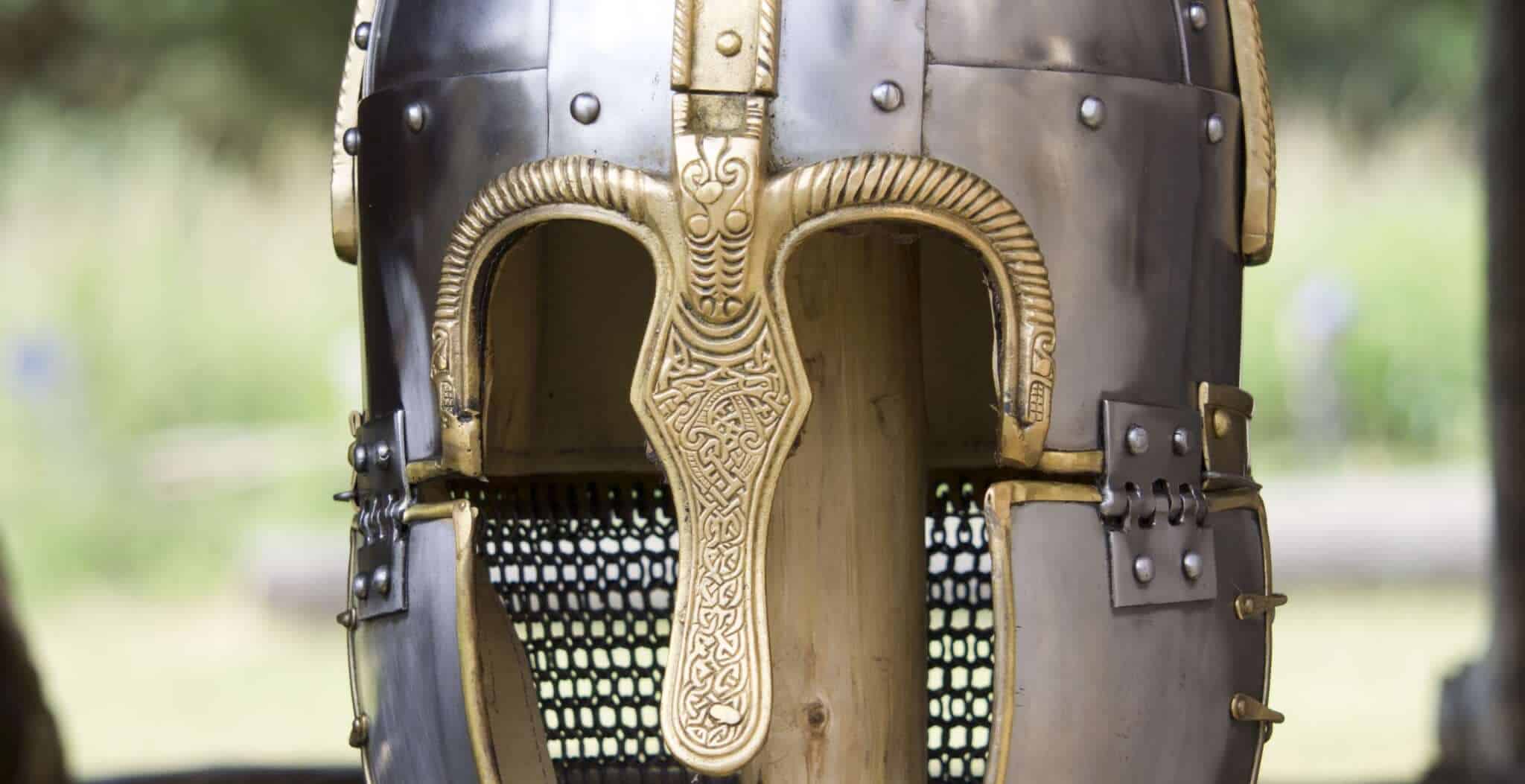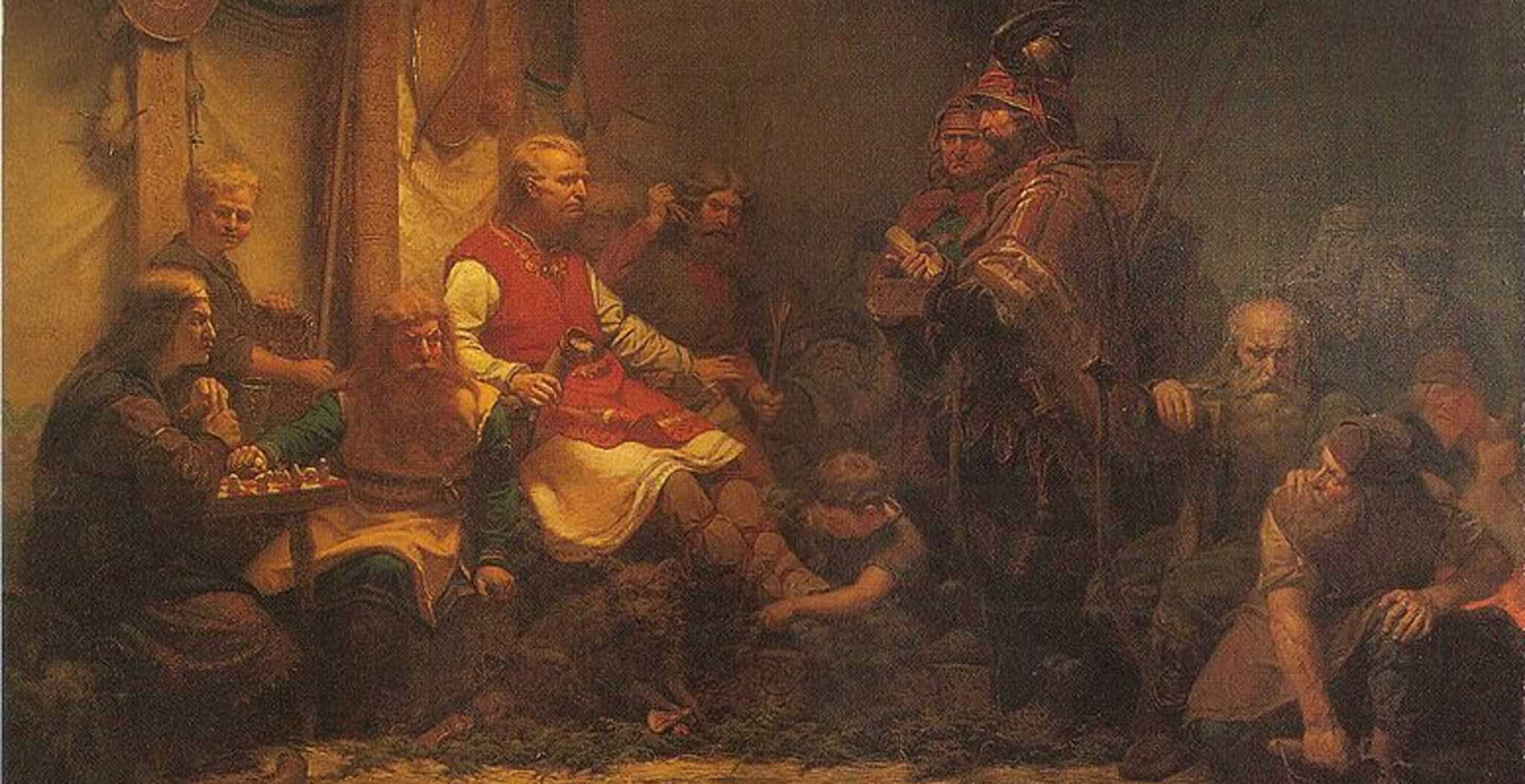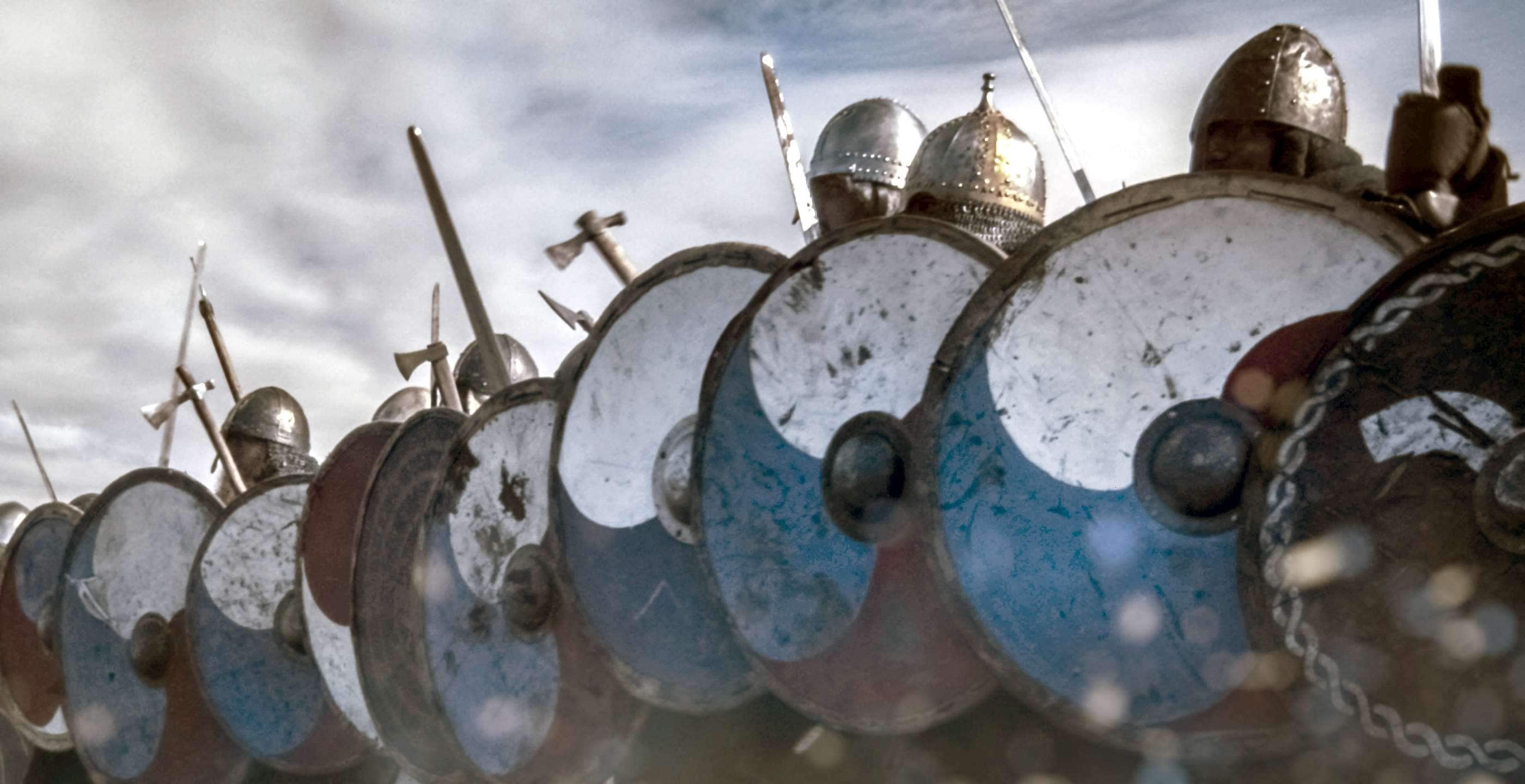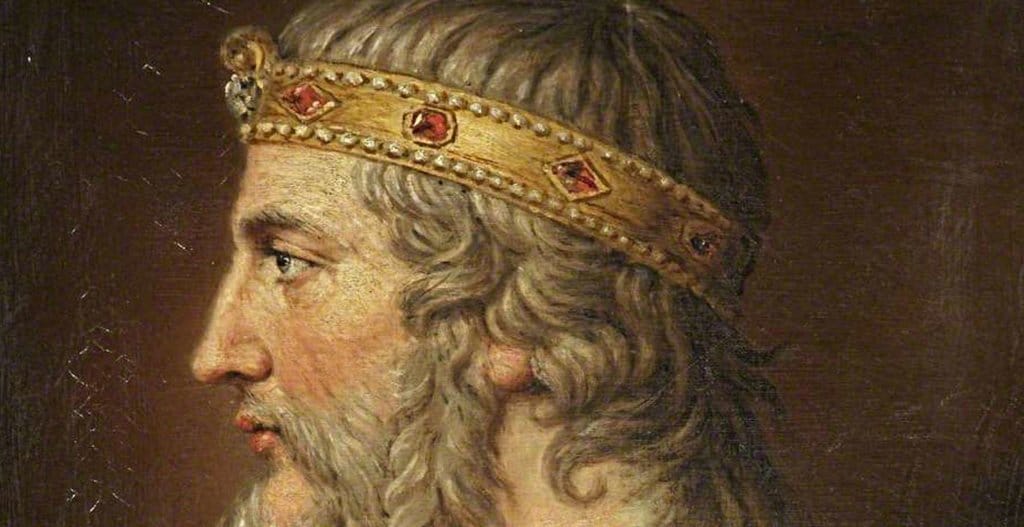As the son of King Alfred the Great, Edward the Elder had a lot to live up to during his reign but he did not disappoint. Whilst he did not share Alfred’s great scholarly reputation, Edward was able to rule as King of the Anglo-Saxons, dominating an ever-expanding territory at the same time as seeing off the Viking threats to the north. His military record and ability to maintain central authority for twenty-five years was admirable.
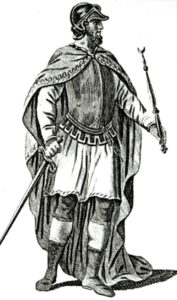
Born to King Alfred the Great and his wife Ealhswith of Mercia, he was referred to as the “Elder”, not because he was the eldest son, but rather used by historians to differentiate between the latter King Edward the Martyr.
As a young boy he was said to have been tutored in Alfred’s court alongside his sister Aelfthryth in literature and prose but also guided in behaviour, duty and attitude. This early education would hold him in good stead for the strenuous demands on his management skills during his later reign.
Moreover, Alfred did his best to ensure that young Edward’s path to kingship was clear, making arrangements long before, in order to bolster Edward’s position as well as give him military instruction.
In 893, Edward was given the responsibility of leading an army at the Battle of Farnham as the Vikings continued to wage war.
Around the same time Edward also married, the first of three marriages during his lifetime. In total he had thirteen children, three of whom would inherit the throne after his death.
Meanwhile, all was about to change when on 26th October 899, King Alfred the Great passed away leaving Edward as the next in line.
All however was not plain sailing for the young royal as Edward’s accession to the throne did not go unchallenged. The threat to his position came from his cousin, Aethelwold whose father had been King Aethelred I, Alfred’s older brother.
Aethelwold’s claim to the throne was legitimate, based on the fact that his father had served as king and when he died in 871, the only reason Aethelred’s sons did not inherit the throne was because they were still infants. Instead, Aethelred’s younger brother Alfred inherited the Crown of Wessex and thus the dynastic line continued.
Under King Alfred’s leadership, the Vikings proved to be a considerable threat to the crown particularly when they dominated regions including Northumbria, East Anglia and East Mercia.
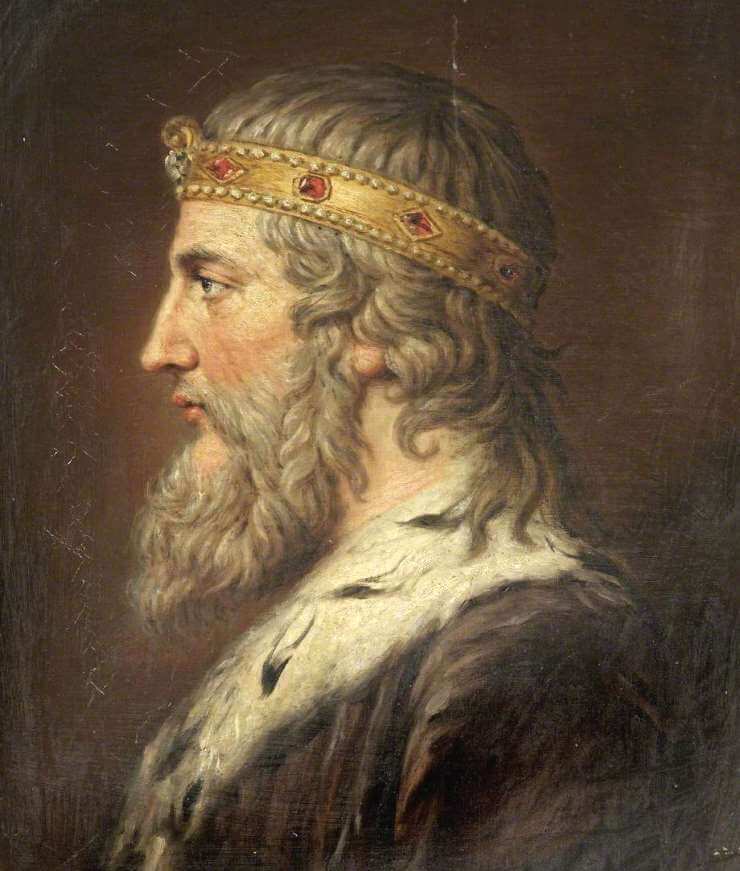
Thus seeking to hold onto power, King Alfred was able to consolidate his prestige and maintain his Anglo-Saxon stronghold when the Lord of the Mercians (in the neighbouring kingdom) agreed to Alfred’s lordship.
In 886, King Alfred was no longer simply the King of Wessex but rather the King of the Anglo-Saxons.
This was the title that Edward inherited when his father died.
When he succeeded the throne, in response Aethelwold launched his rebellion from Wimbourne in Dorset and seized royal estates whilst making threats towards the new king.
Aethelwold however soon made the decision to skulk away in the middle of the night to avoid Edward’s men, and made his way to Northumbria where he was offered a kingship by the Vikings.
Meanwhile, Edward was crowned king on 8th June 900 in Kingston upon Thames.
In one last-ditch attempt in 901, Aethelwold returned to Wessex and finally lost his life at the Battle of Holme the following year.
At this point, Edward could breathe a sigh of relief as the last tangible threat to his position disappeared.
Now his main focus had to be the ominous threat posed by the Vikings who had settled in their newly seized territory.
Initially in 906, Edward had brokered a truce however it did not last long and ultimately further groups of Vikings began to launch raids.
Soon it became clear that Edward needed to engage his military training and launch a counterattack, which he did with the help of his sister, Aethelflaed.
Together, brother and sister would begin the construction of fortresses in order protect their territory.
In the 910s, a combined Mercian and West Saxon army launched an important defeat against the encroaching Northumbrian threat.
Meanwhile, Edward turned his attention to southern England and its Viking dominated territory. With the assistance of his sister who was now the Lady of the Mercians after the death of her husband, the two siblings were able to launch a very successful attack.
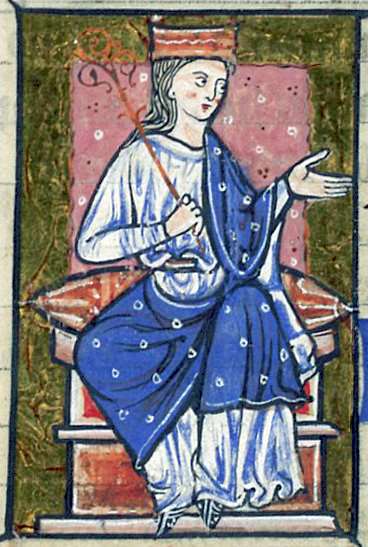
Now as the widow of the Mercian king, Aethelflaed controlled her own army and whilst she turned her attentions to west Mercia and the Severn River area, Edward focused on East Anglia.
Almost a decade later, the two siblings could boast of their successes in forcing the Viking position further and further back whilst Aethelflaed herself made a significant contribution in capturing Leicester without a fight whilst gaining the allegiance of the Danes in York in the process.
The willingness to form ties with the Lady of Mercia most likely came as a result of wanting protection from the unnerving presence of the Norse Vikings who were already dominating Northumbria. Whilst the city itself did later succumb to Viking lust for territory, Aethelflaed’s contribution to Edward’s Viking push-back was undeniable.
Sadly when she died in 919, her daughter’s attempt to follow in her mother’s footsteps was short-lived as Edward took her into Wessex and absorbed Mercia in the process.
By the end of the decade, Edward looked over his dominions which included Wessex, Mercia and East Anglia.
Moreover, three Welsh kings, formerly aligned with the leadership of the Lady of Mercia, had now pledged their allegiance to Edward.
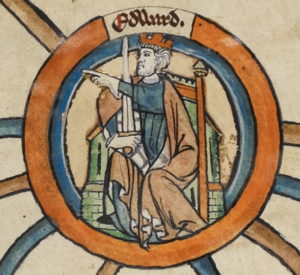
By 920 he had become overlord to many more territories and extended his powerbase considerably. What he had lacked in academic aptitude, he made up for in military acumen and political machinations.
That was not to say however that he was without opposition, as he would face revolts against his growing power and involvement in other territories such as in Mercia where a revolt in Chester broke out. A combined Mercian and Welsh effort against King Edward demonstrated how not all of his subjects were happy with his extended domination over their own kingdoms.
In 924, whilst facing off attacks from a revolt he died at Farndon, not far from Chester, from wounds inflicted by the rebel forces.
His twenty-five year reign had come to an end on the battlefield, leaving his eldest son Aethelstan to inherit the throne.
Whilst his father, King Alfred had a great impact on culture and social infrastructure during his reign, Edward’s biggest impact was his military prowess in the face of great threats from overseas.
King Edward’s reign dominated an era of growing threats against Anglo-Saxon power. In this time, his greatest achievement was not only holding onto his own dominion of Wessex but also being able to gain more land and power, subjugating others and pushing back the Viking forces as far as he could, thereby consolidate his own personal power and that of the Anglo-Saxons as a whole.
Jessica Brain is a freelance writer specialising in history. Based in Kent and a lover of all things historical.
Published: 10th March 2022
